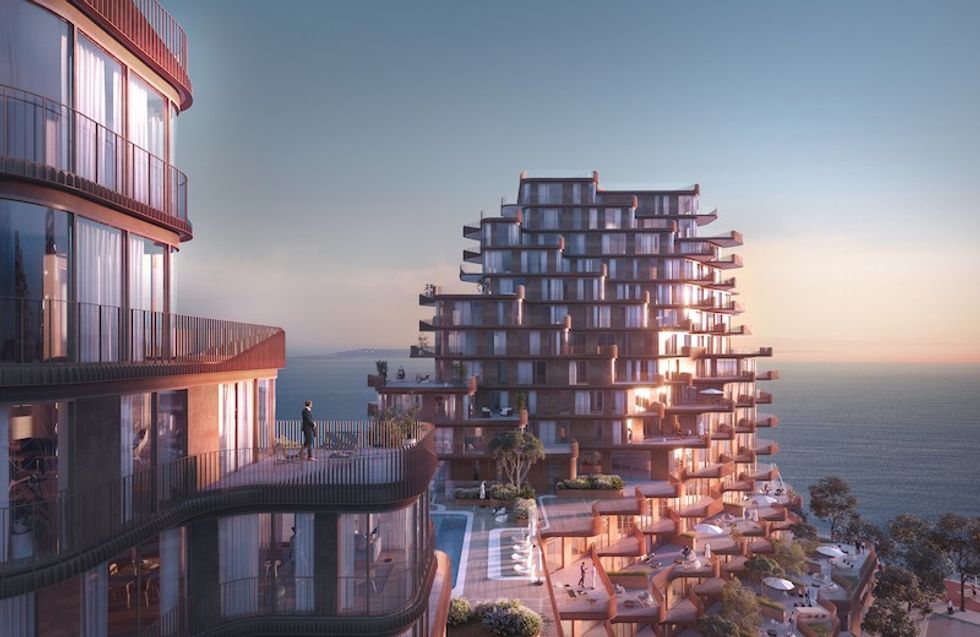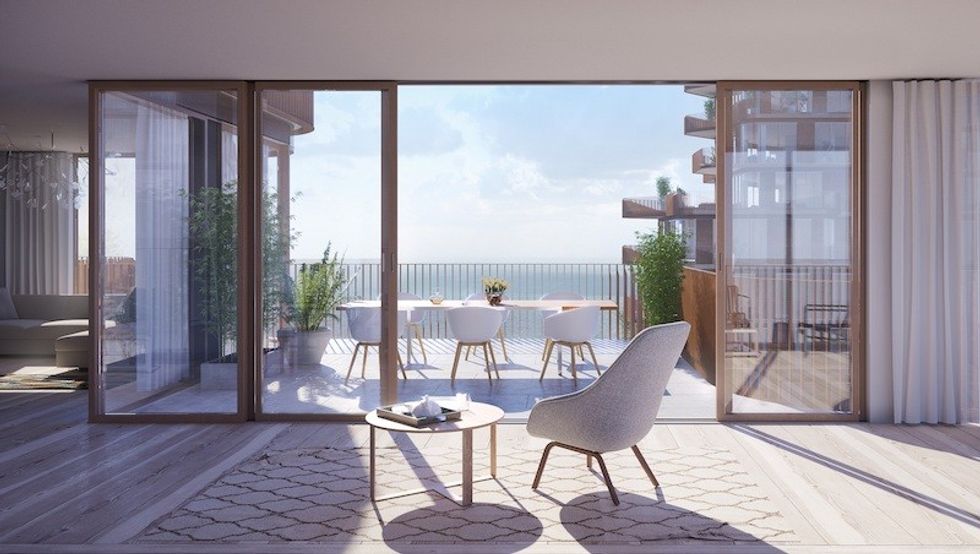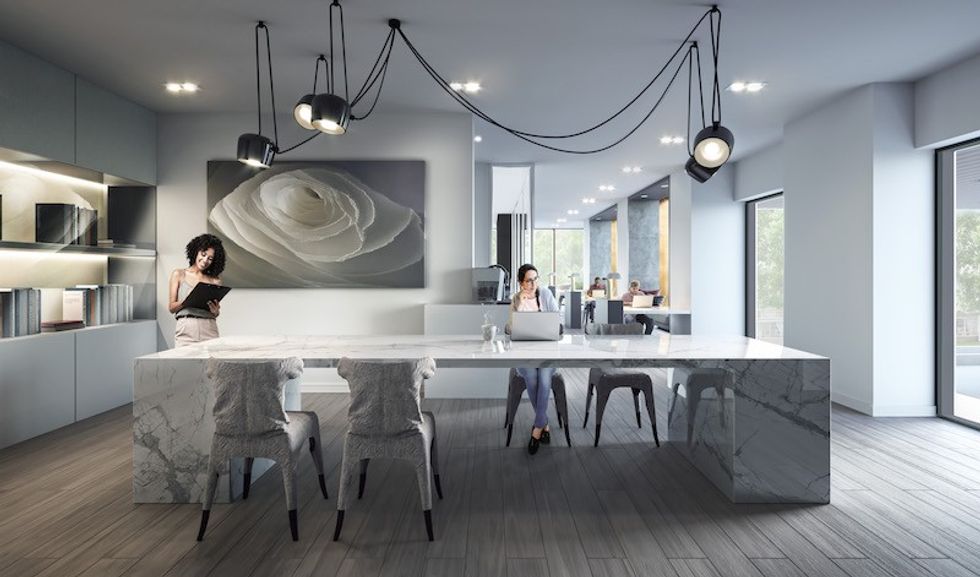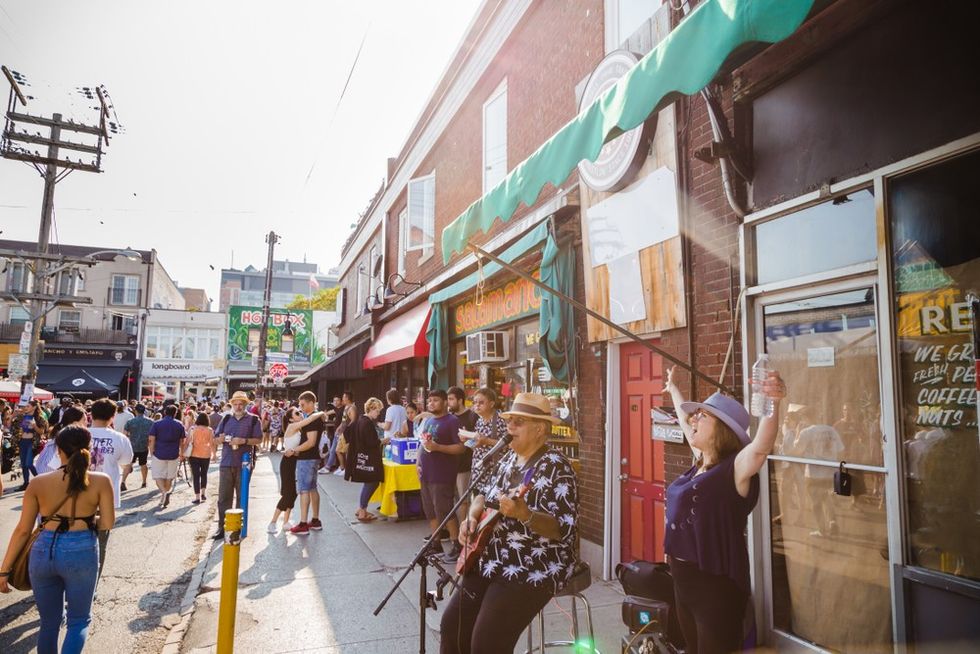The start of the story is well-established by now: 2020 rocked the downtown Toronto condo market's world.
And with good reason.
The COVID-19 pandemic -- plus all the closures and lifestyle changes related to it -- saw the core go quiet for months starting with lockdown last spring.
But despite the dramatic drop in activity that occurred in April, May, and even June of 2020 (year-over-year sales were down 69.9%, 58%, and 13.6%, respectively), it only took a few months for downtown to be well on its way to recovery. By December, sales were up a staggering 75.9% from the same month the year prior, and January 2021 kept the momentum going with an 85.5% increase in y-o-y sales activity.
Indeed, with two months of snowballing activity increases under its belt, Toronto can trust its downtown core is back in action.
"[COVID] did put a bit of a damper on things," says Samson Fung, Vice President of Marketing at Tridel. "The appeal of downtown had been, not necessarily the home that you're living in, but the lifestyle and the people around you."
But despite the happenings of the last year, that preference -- for a home in the middle of it all -- isn't one that's faded.
"I think that lifestyle is still very heavily desired by a lot of people," Fung says.
And even in the midst of the pandemic, that's shown. For example, Aqualuna -- which Fung describes as a "super-luxury type building," providing an average of 2,000+ square-feet of space for the remaining suites -- continued to see sales interest and activity on-par with what it might have experienced in normal times.

"Usually, we do see investors as the first ones to jump back in when the market kind of comes back," Fung says, but in the case of Aqualuna, much of the interest has stemmed from end-users.
Given what Aqualuna is poised to present its inhabitants -- unmatched lake views, sprawling suites, and the fourth and final opportunity to snag dwellings at the coveted Bayside Toronto community -- it's not surprising that it continued to draw interest despite COVID. Who needs to leave downtown if your castle in the sky is complete with a walk-in closet, formal dining room, home office, and outdoor space?

Now, the rest of the condo sector looks to be catching up to the action Aqualuna maintained over the last several months.
"There’s certainly a marked turnaround in demand for condominium apartments to the point where we have seen very strong sales growth," says Jason Mercer, Chief Market Analyst for the Toronto Regional Real Estate Board (TRREB).
"But I think what’s even more important to point out is the fact that that sales growth has been outstripping listing growth on a year-over-year basis, which means the market conditions are tightening up again."
If this trend continues, Mercer explains, the continuation of sales activity surpassing listings growth would lay the foundation for renewed price growth in the downtown condo segment.
"It takes a while, of course, for consumers to react or adapt to changes to market conditions. And added to that is the sort of volatility and uncertainty that we see broadly, not just in the housing market but in the economy, public health, and everything else," Mercer says.
"But if [the sales over listings trend continues], I think it is possible we start to see renewed price growth in the latter half of this year."
Benjamin Tal, Deputy Chief Economist of CIBC World Markets Inc, predicts a similar timeline for these price shifts.
"I think the softness in the condo space can be sustained over the next few months, but I believe that the second half of the year and clearly into 2022, you will see an increase of activity in this market, and it’s starting, already, to stabilize," he says.
"I would not be surprised if you see, first of all, investors entering the space, and it’s opening already. And I think that people will start realizing that this business of working from home is not permanent, and many people will be working back from the office, and therefore the core City of Toronto will be in high demand."
And these projections are all without yet mentioning the impact that immigration, when it revs up again, will have on downtown sales activity.
"If you think about the condo market in general, whether you’re talking about ownership or rental, one of the most important things to watch is what we see in terms of population growth, especially when we see broad vaccine take-up, both in Canada and around the world," Mercer says.
"If you think about the targets [the federal government has] set for immigration for the next three years, they’re very, very high. The GTA will be the greatest beneficiary of that from a metropolitan perspective."
It's safe to assume that, looking ahead, the core is going to be increasingly bustling. Especially when compared to the last 12 months.
There will be other changes, too; the downtown experience is no doubt changed. But changed doesn't mean bad, and it also doesn't have to mean less good than before. In fact, while the last year has been a tumultuous one, its happenings have presented opportunities for adaptation which will, ultimately, improve life in the core.
"One big thing the pandemic has really taught everybody is to focus more on wellness as a whole," Fung says. "I think that big emphasis on everybody's health and well-being is definitely a positive change in the right direction."
Fung says certain aspects of the condo experience which, for a long time, saw no innovation, have now been forced to undergo changes.
"One thing we're exploring is elevators," he says. "We're exploring with a couple of our suppliers the ability to have elevator apps on your phone, so you can call your elevator from your suite and walk over when it arrives."
Indeed, a clean, crisp solution for a touch-heavy surface. Meanwhile, Fung says air filters are being updated with UV light additions (which inactivate airborne pathogens and microorganisms, including viruses).
"The pandemic has really kick-started this innovation of trying to improve these different systems," he explains.
It's worth noting, however, that Tridel is a developer that has long prioritized the well-being of its inhabitants and the environments they're living in; the attention being paid to these details isn't new. For example, The Well -- the construction of which long predates COVID's arrival in Toronto -- is set to rise over a new addition to Enwave Energy Corporation's Deep Lake Water Cooling and hot water distribution system.

The system harnesses renewable cold temperatures from Lake Ontario's depths, and uses them to cool residential and commercial buildings, hospitals, campuses, and more. Yes, if you're already making the connection, we can confirm: this means those living at The Well will actually be kept acclimated by their home's very foundation.
Talk about a prioritization of well-being.
Of course, there have also been shifts to Tridel's plans this year which have come about in direct response to the pandemic.
"In terms of some of the amenity spaces, they've changed a little. Balcony spaces and terraces are probably more important than ever," Fung says. "At MRKT, most of our suites have balconies or terraces to provide that coveted outdoor space."
MRKT Alexandra Park, rising up just steps from Kensington Market, is chock-full of the types of amenities Fung describes as increasingly important these days. These include outdoor space, but also reach beyond it.
"[On site,] there's a number of amenities for different ages," he explains. "Not everyone just wants the party room and the pool."

For example, not only will the development feature a children's place to play, but there will also be an area dedicated to youth. The hub, made for connection, will allow for co-(home)-working with friends and peers. As well, the fifth floor will have a community rooftop garden on the terrace.

And then comes the amenity -- if you may describe it as such -- of location. MRKT will stand in the city's centre, meaning access to countless neighbourhoods and transit systems in every direction. The University of Toronto is a 15-minute walk north (even quicker via the TTC), while Union Station is almost just as close to the south.
The development's proximity to Kensington Market, too, will be a major benefit when the neighbourhood's weekend crawls begin again.

But, those keen on entering downtown's condo market needn't wait for Pedestrian Sundays to make a comeback.
"I think that entering the condo space in this environment is actually going to be beneficial; the timing is not so bad, because the market is still relatively soft," Tal says.
As sales surpass listings but -- for now -- prices don't illustrate fierce competition, anyone keen on spending spring and summer 2021 swimming through the downtown condo scene ought to dive in.
The water's just right.





















